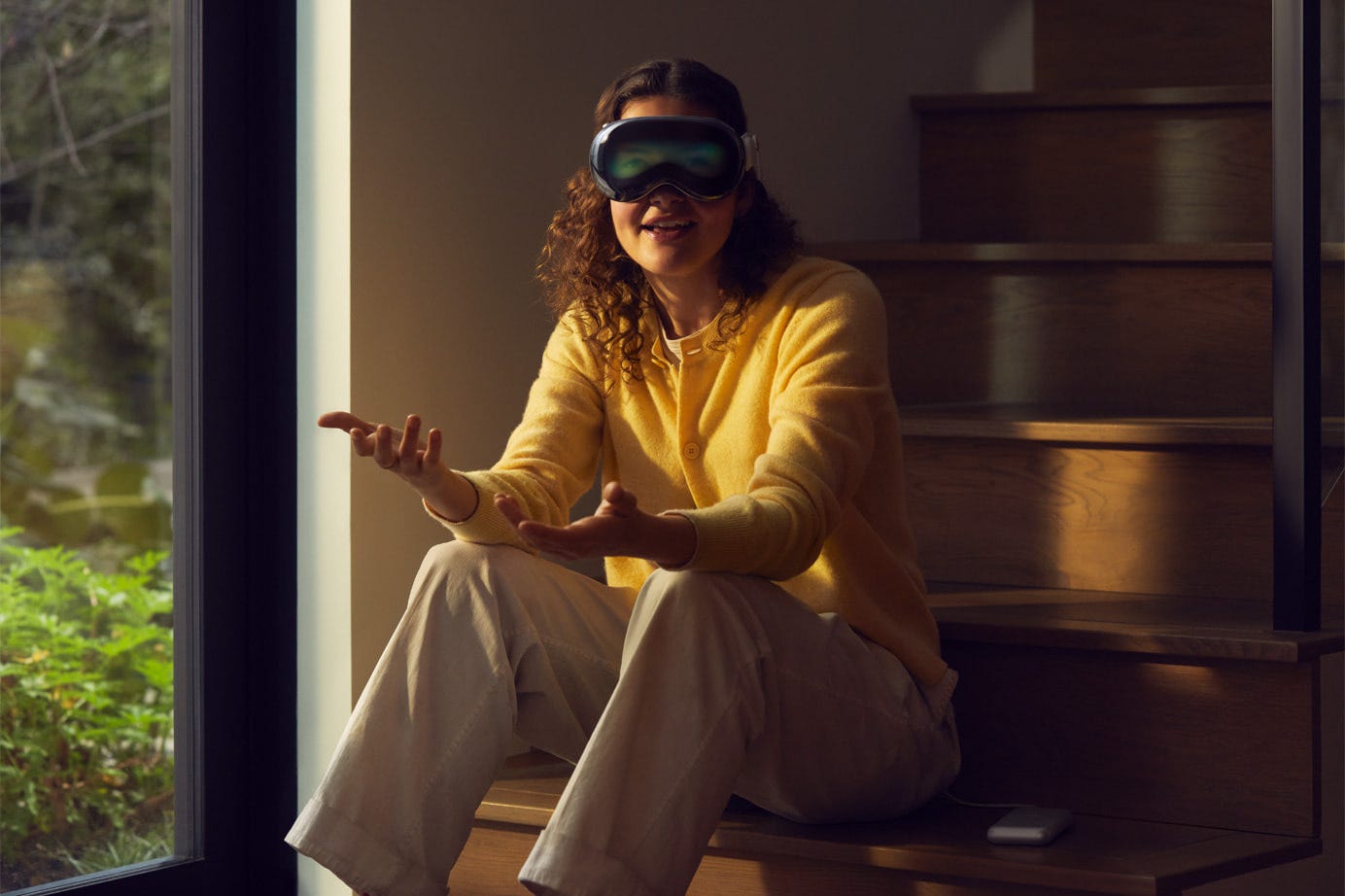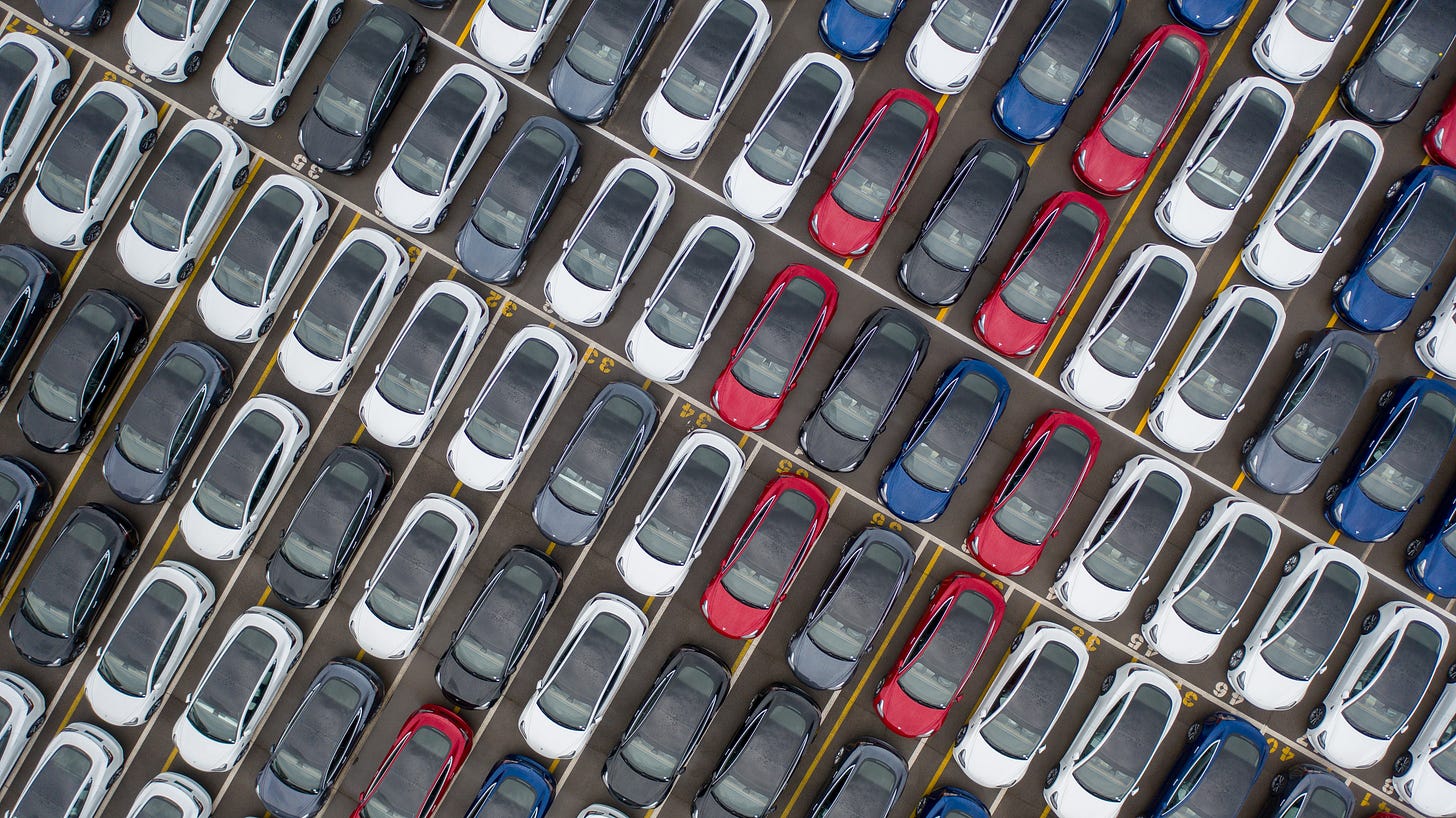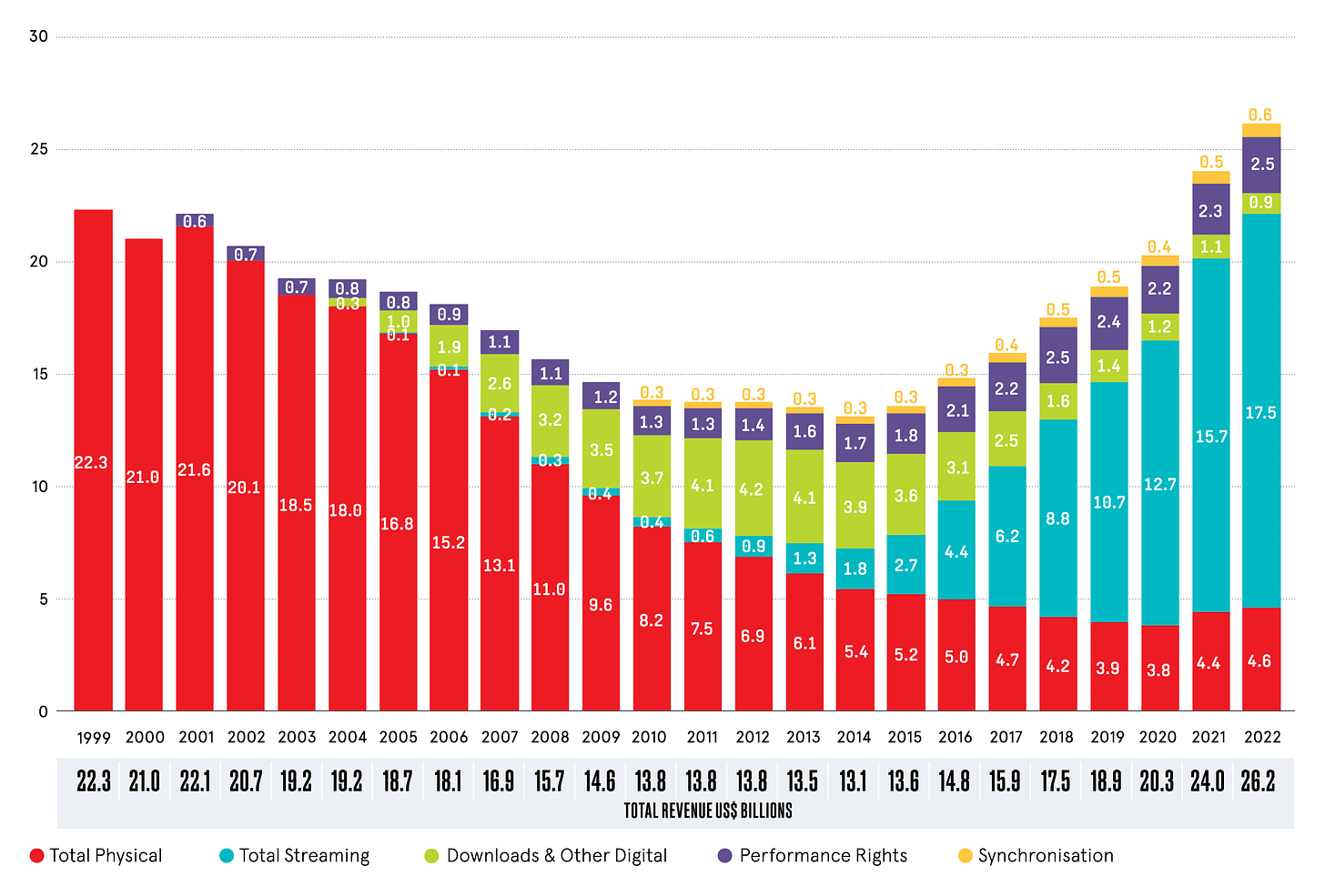Welcome to the second edition of Nowism. Thank you to everyone who read and shared the first edition. Your encouraging and constructive feedback is appreciated. I hope you enjoy this week's content just as much.
News
Put The TV On
Is everyone at Apple OK?
The Apple Vision Pro is without a doubt the most spectacular engineering I’ve ever seen in a consumer product. The thousands of brilliant minds who touched it should take a bow. But quite a lot of the launch felt terrifyingly sad.
Image after image of folk blessed with good looks, vast luxury apartments, perfect sofas, but no friends. A dystopian vision where technology got in the way, cocooned us from life. Tech is best in the foreground, something we forget about and only notice when it doesn’t work.
For years I worked with Nokia on their future vision, the goal was “connecting people,” and then “connecting people with everything.” This feels like hiding away, looking backwards, not forwards. To give up on the world, not to explore it. It felt like Minority Report’s darkest moment, in an ad.
This seems like a product born from a pandemic, or riots, for painful divorces, for a smoke-filled New York, for a life of wealth, not richness. More stimulation as a service for those who don’t want to leave the home. The real cost of this wasn’t $3,499+tax, but giving up on dreams of a better future.
Now, I’d be amazed if the product ships in less than a year, and even then I’d expect sales volume to be limited (300-500k?), so it’s more about announcing a new SDK and platform for others to build on. For a product sold on the idea of “spatial computing,” it all seemed very flat, so they need people to build on it fast and to make something beyond eye-controlled Excel spreadsheets in every room in the house.
Any other company would have developers terrified about sinking money into something with a small user base, and the vicious circle of a two-sided marketplace kicks in. But this is Apple.
This is perhaps really about how other Apple products will become more experiential, how we can create new case studies for a 3D immersive world, and how can they build upon the technological leaps forward and the 5,000+ patents pushed through.
Expect to see more SLAM products, 3D video, and still cameras, with more focus on augmenting the world with depth and new interactions with your eyes ( and soul?).
I hope so. People have been obsessed with what’s next after the smartphone, but in this long piece I explain why it’s probably not VR or AR, but extruding stuff onto the world around us. More comments on the Marketing here.
Retail Ad-Ventures
In my first job in the USA in 2010, I sat next to the best salesperson I’ve ever known. They were tasked with selling “website audience monetization.” The idea was that if you sold pizza or groceries, or were an airline, etc., why not become an ad network and make money from the millions of eyeballs that visited your site?
Everyone laughed at them.
In 2023 Amazon will make $45bn of incremental revenue with a 50%+ margin, and potentially be the world’s third-largest media owner (if they overtake Bytedance and Alibaba). This isn’t a new idea. Alibaba’s entire model from 1999 was always to make money from ads.
The growth in retail media is taking everyone by storm and surprise. Walmart is stepping up impressively and imaginatively, growing at an insane 40% year on year, to now offer a whole array of ways for brands to connect with consumers. From radio ads to online ads to in-store sampling.
What’s quite interesting to ponder is who will own this space. Are shelf-label digital screens advertising or trade media? Who makes the creative? At some point, we should accept the lines between advertising and commerce are now meaningless and think more in terms of flows, not channels.
Many more questions arise. How do retailers balance incremental high-margin ad revenue, without pissing off customers, and their entire reason to exist? What new skills do they need to acquire? What new data do they need to measure?
And for brands, as ad spend moves away from brand and closer to the point and moment of purchase, are you moving money to more effectively advertise? Or are you not creating success but merely attributing it better?
While we’re on retail, Nike shows the move to DTC seems to be reversing slowly. It turns out that retailers are handy for doing all the things that you don’t want to do and cost you money.
EV Go Home
Lots of EV Charging news this week.
For a start, after (a truly staggering!) 48 consecutive years, the world’s best-selling car is no longer a Toyota Corolla. It’s an EV: the Tesla Model Y, no less. That’s quite a big deal when you think about it.
At the same time, leaked reports show the Tesla Cybertruck has some rather massive issues, car design is one thing, and car assembly at scale is another. As the market develops and time goes on, all the questions facing all car companies, whether they start with software or electronics, or mechanical engineering, all become legacy car-making challenges.
For me, the charging landscape is a mess like no other with a million different formats, speeds, and apps, and while it was impossible to imagine this years ago, the ease of filling up a car is now a strong reason to buy, or more likely, not buy a car. After agreeing with Ford, Tesla now provides GM access to most of its finest chargers.
Meanwhile, here's some news that's less about chargers and more about how the internet is becoming more connected and smart cities are slowly becoming a reality. With a recent iOS update, you can now see in real-time where available chargers are located. Maybe someday they'll add parking spaces to the mix?
Spotify playing all the wrong notes
For a while, Spotify faced the awkward problem that the more people they signed up, the more music they played, and the more money they lost. 450 million people love using Spotify each month, but it’s never come close to making a profit. It’s worth $29bn because the assumption was they could probably move to podcasts or books, or content, or something, and make some money. Well, this week they announced a 'strategic realignment’ of their podcast division with 200 job cuts.
Global Recorded Music Industry Revenues 1999 - 2022 (US$ BILLIONS) - Source: IFPI Global Music Report 2023
We’re often obsessed with disruption, and music was indeed an early industry to experience it at the hands of the internet. We saw Napster undermine the music industry, but we have been slow to realize that the industry is worth far more today than ever before. Record labels didn't die. They are actually making more money than ever. Moreover, every single streaming service ever, even in its best years, has never made a profit. But let's not let that get in the way of the "tech disruption is everywhere" narrative.
For lots of stats on the music industry, this report is good.
Things I liked this week
WhatsApp wants to be Twitter, and nobody knows what Twitter wants to be.
One day Hertz and other car rental companies will be screwed because anyone can let anyone use their car, by downloading an app and paying them. Uber is just waking up to this.
I always think ad funding should be the last resort. Not least because ad-supported tiers offer advertisers access not to wealthy urban millennials, but to people of lesser means. But that never stops people from trying. I hope this will finally allow people to buy stuff directly from TV ads.
"I do think the AI community is making a terrible mistake by being full of hype on the near-term implications of generative AI." Some more sober thinking from Ken Griffin
We read a lot about bullshit jobs. I loved this piece about giving jobs more meaning but in a practical way. Always think we should focus more on roles that make people feel a little bit proud.
I loved this newsletter, coining the term “grifterverse,” not least the endless battle these solopreneurs face to get noticed by tweeting out ever more facile motivational poster-like stuff.
I learned from here, the word happy in English originally simply meant lucky, until around the mid-17th century when it became about acquiring pleasurable experiences.
Electric Bikes will be huge in Africa (p.s. In China they are EVERYWHERE)
Everyone loved these beautiful QR codes, but Google Lens can make any image a URL shortcut so we could just use art.
What I’m doing
This week again was all hands on deck for recording content for the Digital Transformation course launching in September.
All We Have Is Now has a new London home at Television Centre in West London. Drop by and say hello, if ever you’re in the area.
Following speaking at private events at the Cannes Lions, which is just around the corner, I’ll be speaking on June 28th in Switzerland for the Richmond Marketing Forum about how to focus on what matters in a world of distraction.
Brandon White has joined All We Have Is Now as Managing Partner. He brings a wealth of experience in media, technology, and finance, having worked for firms including UBS and Bloomberg. More recently, he founded an independent advisory called Aperçu.
P.S. I’m always looking to cover new things, things that make the world better, things that others haven’t noticed, things that aren’t sophisticated per se but profound, and ideas that are rooted in empathy and optimism, please keep sending me things you find suitable.






I absolutely agree with you, Tom, about Apple’s new product. I think what is scarier is that there has already been so much change in the last generation or so, that so few people are even aware of how disconnected we are becoming.
Hi Tom, thanks for the comprehensive newsletter & asI have never installed Twitter, some long form opinion with links works really well for me.
One avenue you could look to explore over the next year or so is Open Data, especially in context of public emergency response. I work in the UK water sector where I do see trials becoming reality within the next year, although perhaps as pilot projects.
On a simple level, imagine being able to take action against rapid flood events on a individual basis rather than rely on state disaster relief....